Haiti in crisis: Prison health provider gets on last flight, works from Palm Beach County
In the quiet suburban Lake Worth Beach office from where she works now, Karine Duverger still can hear the noise of the gunfire that has turned Port-au-Prince, Haiti, streets into battlegrounds.
It echoes in her ears, from the days before she caught the last flight out of the city, as it grew closer and more constant each day.
She can hear it now in the videos of chaos that colleagues who are still there send to her. It is a relentless soundtrack that evokes despair.
The work that continues in some of the desperate settings in Haiti, however, gives Duverger hope.
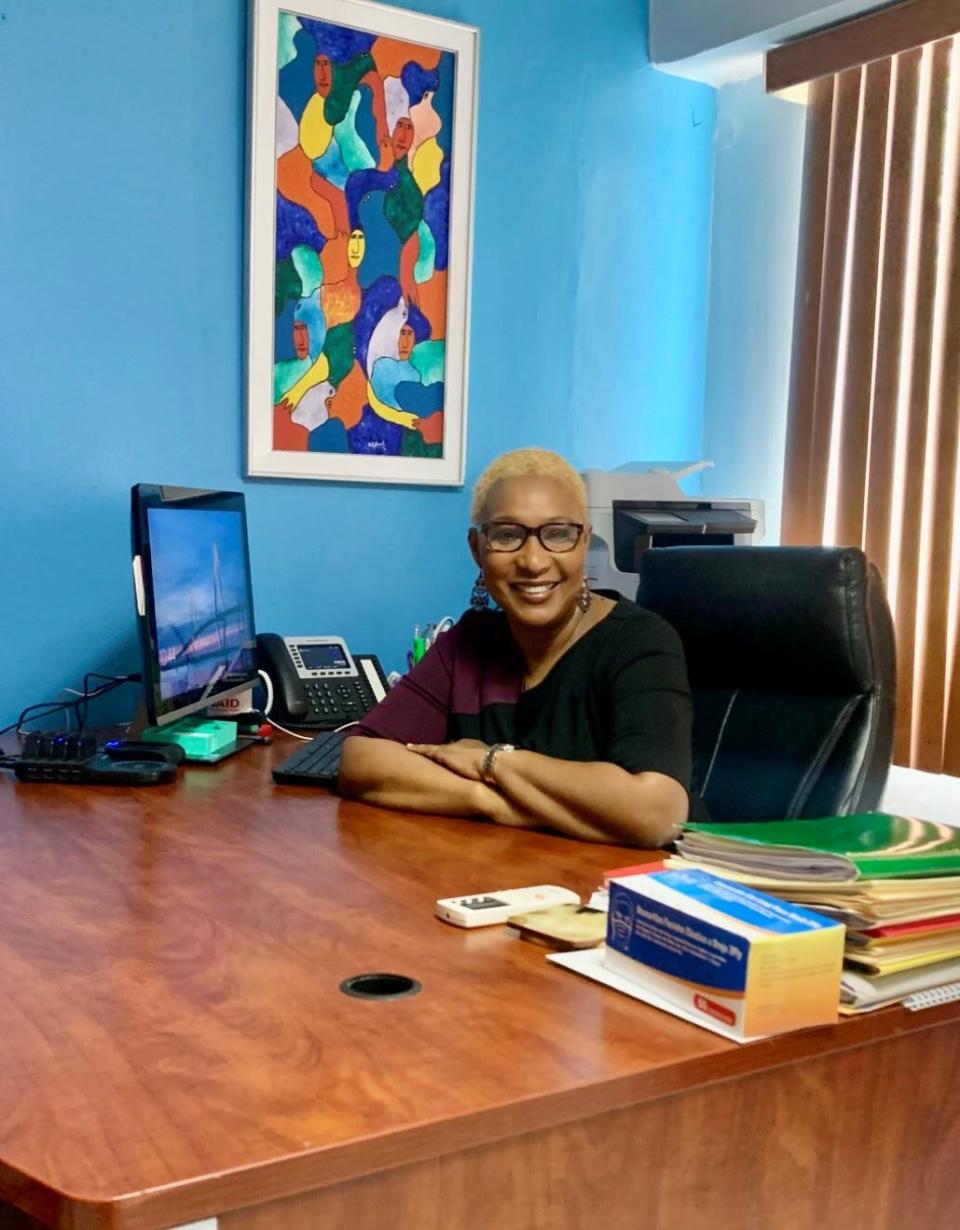
She leads Haiti-based efforts for Health through Walls, a U.S.-based nonprofit working to build prisoners’ access to health care in resource-limited countries around the world. It is work that includes addressing prisoners’ access to food, sanitation and justice as well as to diagnostic care and medicine.
The work is based on the premise that inhumane conditions that allow disease to spread within prison walls also allow it to flourish everywhere.
Over the past two decades, that work has faced some of its most challenging obstacles in Haiti since the organization’s first unfunded volunteer efforts began there.
Still, that work has continued, and seen victories, through catastrophic natural disasters as well as outbreaks of cholera and COVID-19. It is in that progress, and what they are still able to do, that gives Duverger hope now.
Unprecedented instability
Duverger has seen setbacks over the years, including in the wake of the 2010 earthquake when fleeing prisoners destroyed computer files and diagnostic equipment they thought might contain information that would identify them.
She has been evacuated twice, before and after the assassination of Haiti President Jovenel Moise in 2021. Both times, Duverger returned. She can't guess when she will be able to now.
“I have never seen anything like this,” she said.
About 40% of Haiti’s police force have been among the more than 100,000 Haitians who have left the country since a U.S. humanitarian immigration sponsorship program launched in the fall of 2022, she notes. That exodus opened opportunities for gangs seeking to overturn the government to consolidate and spread.
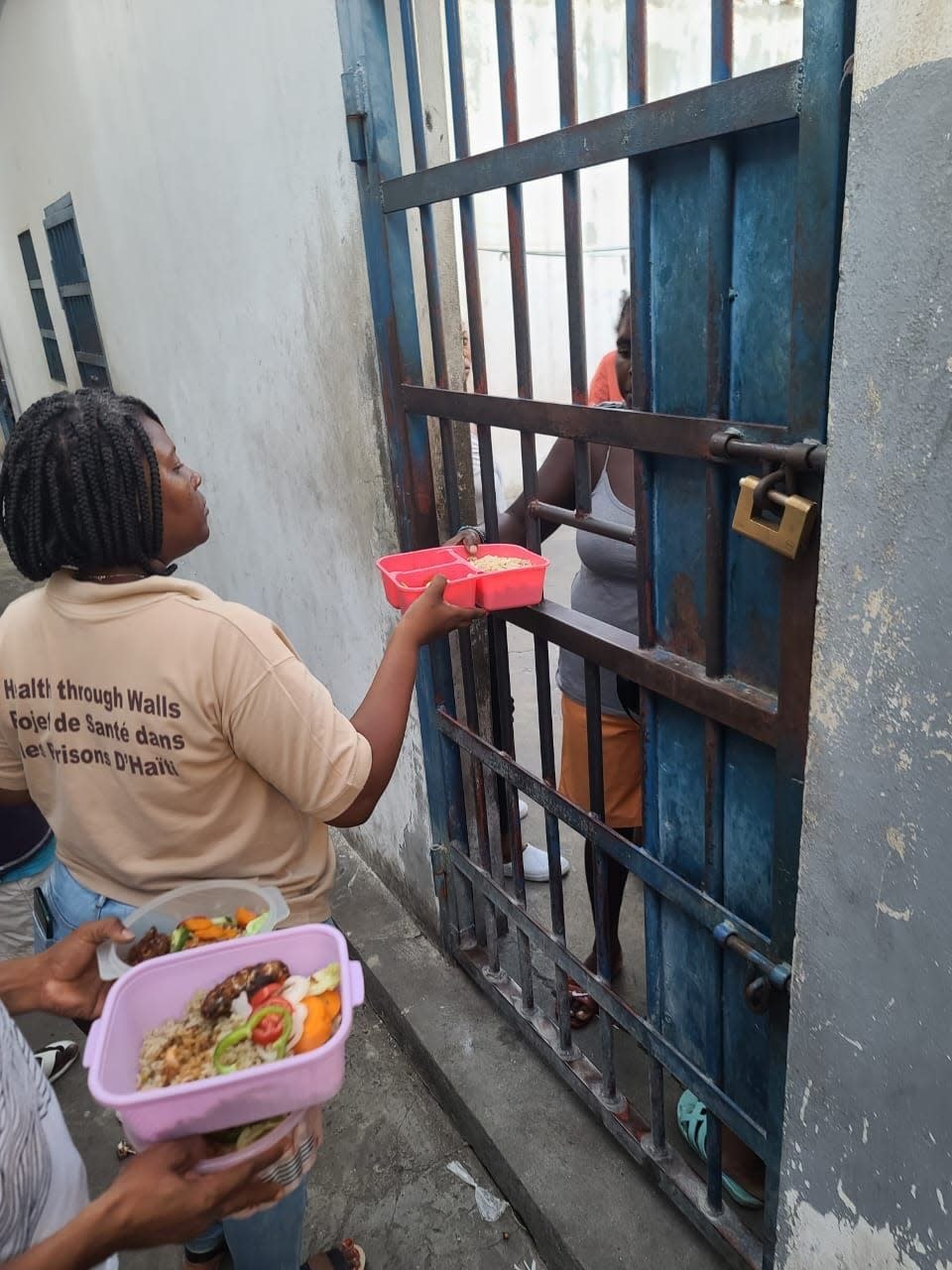
The gangs' strengthening hold and relentless grip on daily life in Port-au-Prince and their impact on the country has been devastating.
“If I could interview them,” she says, “I would ask, ‘What do you want?’ ”
She watched as gang attacks on the city’s streets paralyzed the city where she was born and spent her childhood, putting goods and services out of reach for people outside as well as within prison walls.
Editorial: Put party politics aside. Haiti needs our help.
Gang leaders made no secret of their plans in the days before they attacked two of the nation’s largest penitentiaries, she points out, sending drones over the facilities, and still they were not stopped.
When they saw their plan through, Duverger said, she knew, any hope that the gangs could be contained would be lost.
Staff continues to meet needs
On the day gangs broke into the nation’s two largest prisons, on March 1, the National Penitentiary, built to hold fewer than 800 inmates, held more than 4,700 prisoners. It had long been an incubator for corruption and violence as well as disease.
Nearly all of the prisoners in the two breached prisons fled, and many now have found refuge with the gangs.
The next day Duverger, who is a U.S. citizen and whose family lives in South Florida, headed to the airport where she watched flight after flight get cancelled.
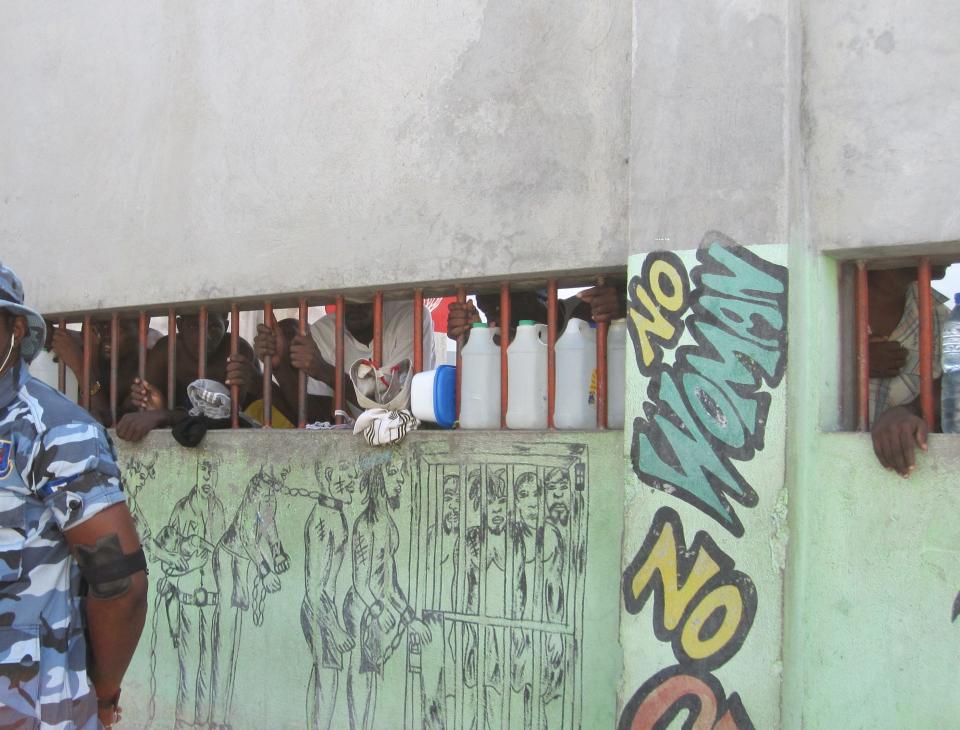
She secured a seat on the last flight out of Port-au-Prince the following day.
From here, she continues to oversee work that even now reflects progress made over two decades.
Where volunteers began with one prison in the early 2000s, more than 160 Health through Walls staff members, who include physicians, nurses, case managers and lab technicians, now provide services for inmates at 15 additional prisons in Haiti.
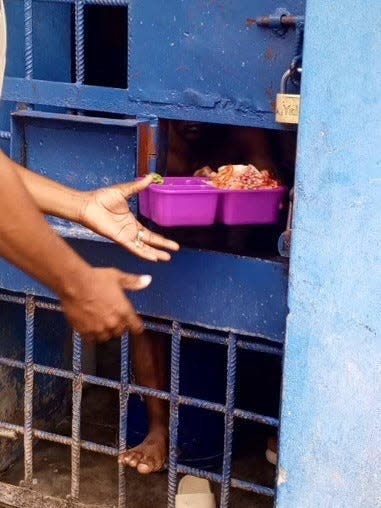
They have continued to ensure access to medicines, including those to treat and prevent transmission of tuberculosis and HIV.
A clinic and four mobile units established by Health through Walls with the AIDS Healthcare Foundation (AHF Haiti) to provide follow-up care for released prisoners remain open.
In prisons where inmates relied on family members delivering food to supplement diets of gruel scooped from wheelbarrows, Health through Walls staff now bring meals supplied through a partnership with another nonprofit.
Without interruption, they have provided daily meals to more than 7,200 prisoners across Haiti.
“I don’t know how to thank them,” Duverger said, “because they continue to go to work. It is a war zone.”
While their work and that of correctional staff gives them purpose, she said, meeting their own needs becomes increasingly urgent.
With airports and wharfs closed, food and fuel prices have reached record highs, and a bulletin on the Health through Walls website seeks contributions to a fund to help prison and organization staff cover the escalating cost of life in Haiti.
New needs arise daily around them.
Prisoners who were receiving treatment at facilities that stand empty are contacting staff because they still need their medicine.
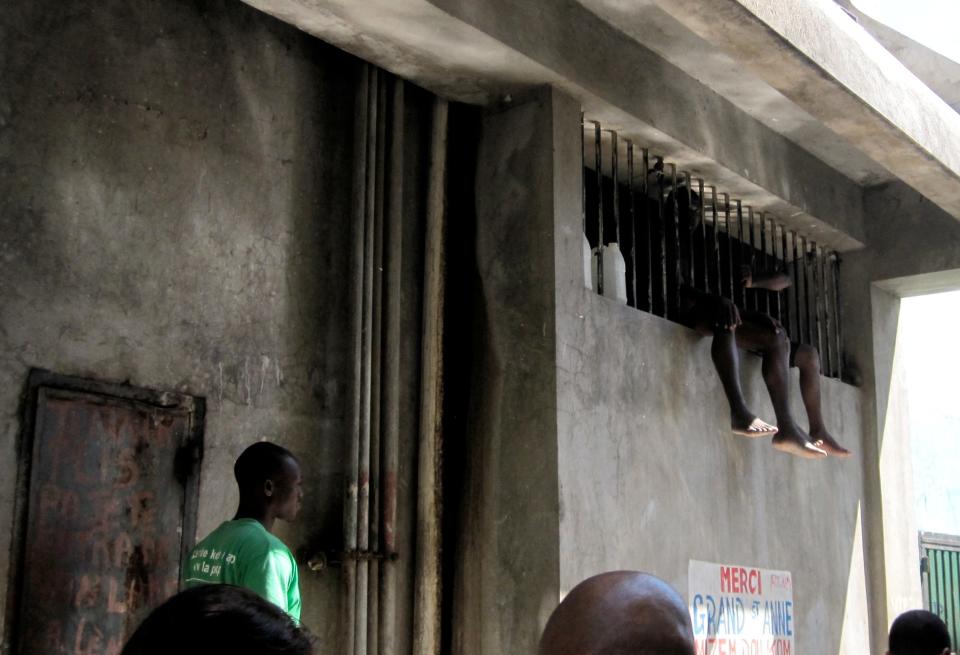
Amid the destruction, Duverger has seen meaningful victories.
Staff who joined police entering the breached National Penitentiary in a tank retrieved diagnostic equipment and computer files. “This time,” Duverger said, “we were able to get it all out.”
She can’t guess what will happen next. But, she says, they will be prepared.
“We’re getting things ready,” Duverger said. “We will not give up.”
Antigone Barton is a reporter with The Palm Beach Post. You can reach her at avbarton@pbpost.com. Help support our work: Subscribe today.
Housecall in Hell was part of a Palm Beach Post partnership with the Pulitzer Center on HIV in the Caribbean.
This article originally appeared on Palm Beach Post: Haiti prison health provider takes last flight out, works from Florida

